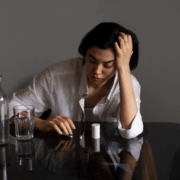Getting through rehab and entering recovery is one of the biggest achievements of anyone’s life. But what you’ll be very aware of is that the hard work doesn’t stop there.
Going through drug and alcohol rehabilitation centres is essential for anyone struggling with addiction. It’s there that you’ll develop the skills on how to cope with sobriety, while also understanding the deep-rooted reasons for your addiction. Essentially, it’ll prepare you for the outside world once again and staying sober within it.
However, that doesn’t mean that cravings or stress will disappear and you will find temptations and challenges along the way. So it’s important you deal with those effectively to maintain sobriety, or bounce back quickly after relapse.
What’s important to state is that relapse is common and it is not failure. But additionally, these five tips will also help you manage and cope with cravings after drug rehab to limit that risk too…
Understand Your Triggers
Cravings rarely arise out of nowhere. They are often linked to specific triggers – situations, places, people, or feelings that remind the brain of past drug use. For example, walking past a familiar pub, spending time with certain friends, or even feeling lonely can bring back powerful urges.
By identifying personal triggers, you can take steps to avoid them where possible, or prepare strategies for dealing with them when avoidance is not an option. Keeping a journal of cravings, noting the time, place, and emotions surrounding them, can be a practical way to spot patterns and gain more control.
Practise Healthy Distraction
Cravings tend to feel overwhelming in the moment but usually peak and fade within 20–30 minutes. One effective strategy is to redirect your attention to another activity until the urge passes.
Physical exercise, such as going for a run or even a brisk walk, releases endorphins that naturally lift mood and reduce stress. Other healthy distractions might include listening to music, cooking a meal, phoning a supportive friend, or practising a hobby. The key is to engage in something absorbing enough to break the mental cycle and remind yourself that the craving will not last forever.
Use Relaxation and Mindfulness Techniques
Stress and anxiety are common triggers for cravings, which is why relaxation techniques can be so powerful in managing them. Mindfulness practices, such as focusing on your breathing, meditation, or grounding exercises, help to bring attention back to the present moment and reduce the emotional intensity of urges.
For example, the “urge surfing” technique encourages people to observe a craving as if it were a wave, rising, cresting, and eventually passing, rather than something that must be acted upon. Over time, these techniques build resilience and give you confidence that cravings can be tolerated without relapse.
Strengthen Your Support Network
Recovery is far easier when you are not facing cravings alone. Having a strong support network, whether through family, friends, or peers in recovery, provides both accountability and encouragement.
Talking openly about cravings can be a powerful way to diminish their strength, as it removes secrecy and reduces feelings of shame. Attending support groups, either in person or online, also helps by reminding you that others face the same challenges and have developed strategies that work. Surrounding yourself with people who understand and support your recovery goals creates an environment where you are less likely to act on urges.
Focus on Long-Term Goals and Rewards
When cravings strike, it is easy to lose sight of the bigger picture. Reminding yourself why you chose recovery in the first place can be a strong motivator to stay on track. This might involve writing down your goals, such as rebuilding relationships, improving health, or pursuing education or career opportunities, and reviewing them when temptation arises.
Celebrating milestones, whether one month sober or one year, reinforces a sense of progress and achievement. Keeping sight of these long-term rewards helps shift focus from the short-term urge to the lasting benefits of sobriety.














